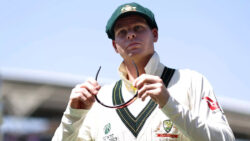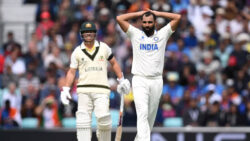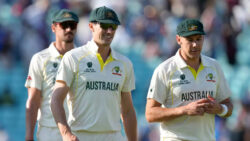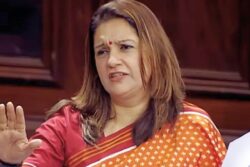Duncan Fletcher is the Invisible Man of Indian Cricket

It was April 26th, 2011. A tetchy voice muttered a few words at the other end of the long distance line. I had phoned the newly appointed coach of the Indian team for his thoughts on accepting his career’s most challenging assignment.
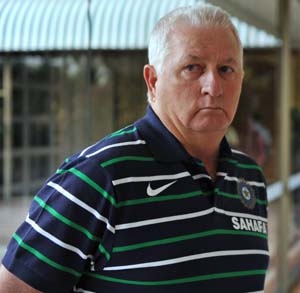 “Please understand that I’m not at liberty to talk. The BCCI would not like it.” A click-like sound followed by total silence. And that’s how it’s been for 18 months since Duncan Fletcher took over as Gary Kirsten’s successor. Apart from the odd press conference before or after a game, we’re yet to hear anything of any real substance from Fletcher on the disasters that were tours of England and Australia, losing Rahul Dravid and VVS Laxman, his plans, if any, for a post-Sachin Tendulkar India, or his contribution to team selection. Not one media house has managed a tête-à-tête with Fletcher, who has maintained a stony silence through his tenure, and will continue to do so till he sees out his contract in six months, courtesy a gag imposed on him by the BCCI.
“Please understand that I’m not at liberty to talk. The BCCI would not like it.” A click-like sound followed by total silence. And that’s how it’s been for 18 months since Duncan Fletcher took over as Gary Kirsten’s successor. Apart from the odd press conference before or after a game, we’re yet to hear anything of any real substance from Fletcher on the disasters that were tours of England and Australia, losing Rahul Dravid and VVS Laxman, his plans, if any, for a post-Sachin Tendulkar India, or his contribution to team selection. Not one media house has managed a tête-à-tête with Fletcher, who has maintained a stony silence through his tenure, and will continue to do so till he sees out his contract in six months, courtesy a gag imposed on him by the BCCI.
His silence is a very small part of the problem. Fletcher is the invisible man of Indian cricket. A very well paid one at that–estimates suggest he draws approximately Rupees 20 million a year. While the buzz around England’s arrival, the Indian team selection, and the tour games is well and truly underway, there is no sign of the coach. Soon after he parted ways with England, whom he coached from 1999 to 2007, and led famously to a first-in-a-generation Ashes win (2005), Fletcher was quoted as saying, “I love my rugby. I would rather watch rugby than cricket.” We’ll take his word for it.
Unlike John Wright, the former India coach who could put the selectors to shame with his propensity to watch domestic cricket, Fletcher has chosen not to visit any Ranji matches. Ranji cricket apart, he has been conspicuously absent for England’s two tour games in India. And while he is expected to show up for the three-day camp just days before the first Test begins in Ahmedabad on November 15, India’s preparations for the forthcoming Tests seem insipid and lacking in direction. Compare this to the kind of homework England are putting in, having arrived three weeks early, and there is some cause for concern.
Which begs the unkind question: when Fletcher took on this assignment at the age of 62, a cause of some mirth in the Indian dressing room among the younger players who referred to him as ‘uncle’, was he thinking about his retirement fund? He may hold an impressive CV, come highly recommended and be well regarded as a tactician and technical expert. But it is yet to pay off in this stint.
There is no denying that the Indian players have immense respect for his technical knowledge and strategic abilities – apparently, the idea not to offer England any experience in playing spin prior to the first Test was Fletcher’s – and they speak about benefitting immensely from their one-on-one sessions with the coach as far as sorting out technical difficulties is concerned. But he doesn’t seem to have developed a personal rapport with them like Wright or Kirsten did.
Kirsten, especially, was treated like a confidant whom the players implicitly trusted with anything. Fletcher is distant and peripheral. He is also less involved during practice sessions and seems unsure on communicating effectively with different players to draw out the best from each one of them.
Coaching at the highest level involves much more than technical excellence and strategy. It’s about leadership, motivation, maintaining success, team building and identifying talent. It’s almost ironic then, on perusing some of Fletcher’s columns from a couple of years ago, to see the qualities he lists as must-haves for a good coach – energy, enthusiasm, strong leadership, good motivational skills, and being media shy.
In fact, just a couple of weeks before he bagged the India job, Fletcher wrote about what contributed to Kirsten’s success with India in a column for The Guardian, “Kirsten is a tough man, but he is also the kind who is quick to put an arm around your shoulder. He talks quietly to people and tries to motivate them in a positive way. That is why he has built up such good relationships with the Indian players. You hear them talking about him as though he were a friend more than a coach, which is very telling.”
So if the players liked and respected Wright, disliked and did not trust Greg Chappell, loved and trusted Kirsten, they’re somewhat indifferent to Fletcher.
This disconnect seems fairly pervasive in Fletcher’s dealings as coach whether it’s with the players, the support staff, the selectors or the media. The only exception is the BCCI, who seem most pleased with his ability to toe the line. While Kirsten also maintained good relations with the BCCI, his people skills allowed him to maintain a healthy rapport with all the stakeholders, including the media, despite the BCCI enforcing a gag during his term.
The gag order came about after Kirsten had said MS Dhoni was ready to take over as Test captain from Anil Kumble in a television interview to me in Sri Lanka in 2008. That was the last interview of any real substance Kirsten gave the Indian media till the team won the 2011 World Cup and he had decided to move on.
Kirsten often spoke about how frustrating the media ban was for him; Fletcher may not agree. As Fletcher reveals in his 2007 autobiography, Behind the Shades (known for its controversial disclosure of Andrew Flintoff’s drunken exploits), he was dismissive of the English media, incensed by their portrayal of him and deeply bitter about how misunderstood he was.
What he really thinks of the BCCI, the Indian players, his role in this chapter of India’s cricketing history, and the Indian media – a la John Wright’s Indian Summers – will just have to wait till Behind the Shades Part Deux. For all you know, the BCCI may already have inserted a clause in Fletcher’s contract that disallows him from doing a tell-all on his India stint. Gag worthy? Indeed.

